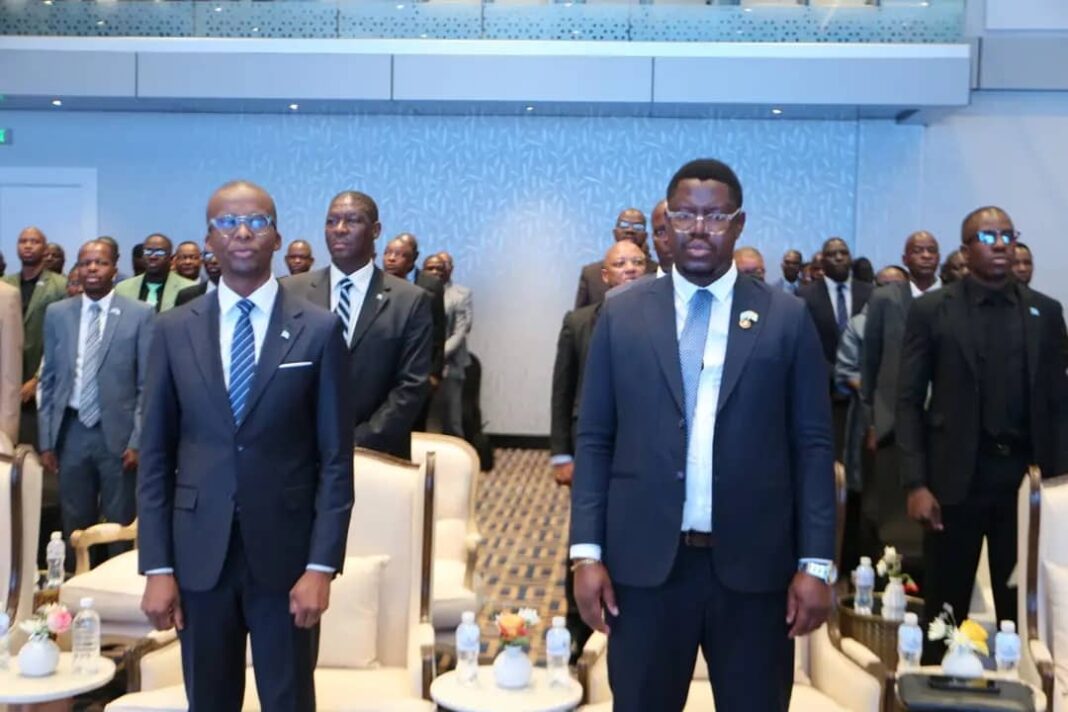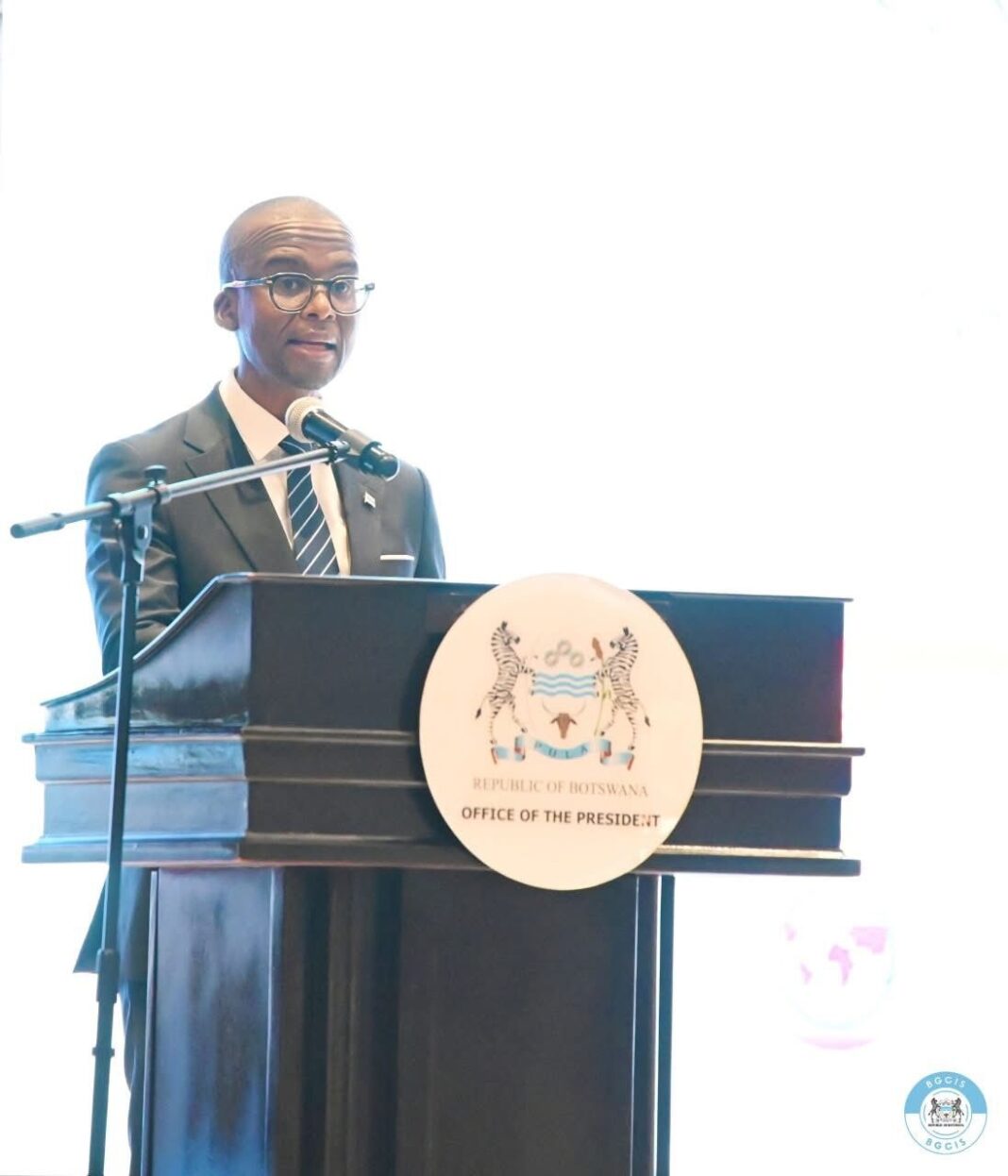The Ministry of Local Government and Traditional Affairs has reiterated its commitment to reshaping the role of local government in Botswana’s democracy and developmental agenda, emphasising decentralisation, rural industrialisation, and transformational leadership as cornerstones for sustainable livelihoods.
Delivering welcome remarks at the high-level symposium themed “Reengineering the Role of Local Government in Democracy and Developmental Agenda,” on Monday morning, the Minister of Local Government and Traditional Affairs, ketlhalefile Motshegwa described the event as transformatory . Motshegwa said the symposium was intended to chart a paradigm shift in local governance, aligning it with the national vision of a democratic developmental state.
He urged leaders to remain focused on their mission of propelling Botswana to new heights. He stressed that effective governance requires “transformational, inspirational, aspirational and ethical leadership,” drawing from ancient wisdom that “honour is the reward of virtue.”
According to Motshegwa, the decentralisation agenda decentralisation will devolve responsibilities and resources from central to local authorities. This, the minister explained, would bring services closer to communities, enhance accountability, and strengthen grassroots democracy.
“The Decentralisation Policy is demonstrative of our commitment to create a governance framework that aligns the roles of central government, local governments, and non-state actors,” he said. “It will promote inclusive, responsive service delivery and sustainable local development.”
Already, regarding this decentralisation, government has demonstrated commitment to its realisation by first transferring primary health care from from the Ministry of Health to the Ministry of Local Government—an initiative aimed at ensuring accessible, quality services for all citizens. Apart from decentralisation, another key pillar outlined was rural industrialisation, which the ministry views as essential to balancing development between urban and rural areas. “We want life to make sense at village level,” the minister emphasised, noting that rural industries can absorb labour, increase household incomes, diversify employment, and spur regional development.
As part of this transformative trajectory, the ministry has also partnered with the Botswana Stock Exchange, signing a memorandum of understanding with Gaborone City Council to explore innovative revenue-generation models for councils. These initiatives, he said, will soon be expanded across other local authorities.
According to the minister, at policy level, the government is pushing for reforms to improve efficiency and inclusivity. Among them is the transformation of Ipelegeng into a developmental public works programme, as well as revised Village Development Committee (VDC) guidelines aimed at strengthening leadership and governance.
Further, he said, the ministry is also reviewing Botswana’s social protection framework to ensure that beneficiaries graduate into self-sufficiency rather than remain dependent. “Our approach is anchored on engagement with the people, so that policies address real problems and reflect their aspirations,” the minister explained.
Furthermore, he added that the ministry intends to give traditional leadership prominence, hence the current ongoing Bogosi Act is under review to strengthen the role of dikgosi in governance and development. He reaffirmed government’s commitment to working closely with traditional leaders in shaping the country’s democratic and developmental path.
Looking to the future, the ministry plans to introduce a model of high-performance councils through the lab system approach. This prototype is expected to become a national standard for effective governance and service delivery, he noted
The symposium marks a critical step in Botswana’s journey to reimagine and reengineer its local governance system, setting a foundation for inclusive development and stronger democracy.



